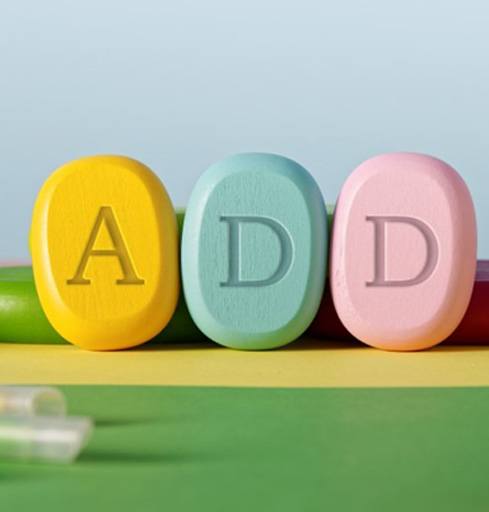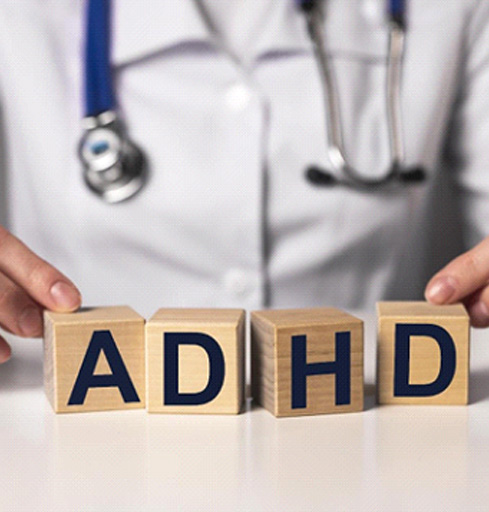Attention Deficit Disorder (ADD) – Westfield, NJ
Finding a Better Way to Stay Focused

Here at Embrace Psychiatric Wellness Center, we understand that there are hurdles you might face if you or someone close to you is living with ADD. However, we’re determined to work with you to find the perfect treatment plan that allows you to stay focused, productive, and positive moving forward so that you can achieve more than you’ve ever dreamed of! Continue reading below to learn a little more about ADD, some of its notable symptoms, and how the condition is ultimately diagnosed and then treated. To request additional information or to schedule a visit, don’t hesitate to contact us today.
What Is Attention Deficit Disorder (ADD)?

ADD (also sometimes called ADHD, or attention deficit hyperactivity disorder) is one of the most common neurodevelopmental disorders of childhood and often lasts into adulthood. Children with this condition generally have trouble staying focused or paying attention, controlling impulsive behaviors, or might seem overly active in general. In adults, it may manifest differently; for example, hyperactivity might appear as extreme restlessness. Scientists are still studying the possible causes and risk factors for ADD in an effort to find better ways of managing it, but current research indicates that genetics plays an important role, as well as other conditions including brain injury, exposure to environmental risks, alcohol/tobacco usage during pregnancy, and more.
Symptoms & Diagnosing ADD

It’s worth mentioning that those with ADD do not simply “grow out” of these behaviors; rather, the symptoms can remain even without diagnosis and treatment. A few common symptoms associated with ADD include:
- Frequent daydreaming
- Forgetfulness
- Constant squirming or fidgeting
- Talking too much or out of turn
- Making careless mistakes or taking unnecessary risks
- Having trouble resisting temptation
- Experiencing difficulty getting along with others
There is no single test to diagnose ADD, and like many other issues such as anxiety, depression, sleep problems, and certain learning disabilities, there is a lot of overlap in the symptoms that manifest. The first step of the diagnosis process involves visiting us for a medical examination that includes hearing and vision tests to rule out other problems.
Treatment Options for Attention Deficit Disorder

In most cases, ADD is effectively treated through a combination of behavior therapy and medication, as well as certain lifestyle changes, though it also varies on the age of the patient. Preschool-aged children benefit the most from early intervention. In any case, good treatment plans always include close monitoring, follow-ups, and adaptations if necessary. Here’s a closer look at two of our available treatment options for ADD:
TMS Therapy
Transcranial magnetic stimulation (TMS) therapy is an innovative, non-invasive approach that utilizes gentle magnetic waves to stimulate brain activity. This can have pronounced effects on brain function and behavior, and for many people with ADD, the treatment works absolute wonders. This procedure can be carried out within a single visit, and following the treatment, patients experience no fatigue or interruption to their day.
Spravato
Spravato is a nasal spray medication that contains a safe, FDA-approved derivative of ketamine called esketamine. It’s been found to be effective in managing ADD symptoms as it can impart benefits such as improved focus and attention, reduced impulsivity, and better emotional processing. During the appointment, the spray is administered, and the patient is closely monitored. Some grogginess and other mild side effects are possible; however, compared to other treatments which can sometimes take time to kick in, the spray begins working within a few hours.
ADHD FAQs

ADD/ADHD can have a big impact on your life, and our team is here to help you cope.Before you attend a consultation with us, you might want to know more about this disorder and potential approaches to treatment. Below, you will find answers to some common questions. If your specific questions are not addressed here, contact our office to ask for more information.
What Are the Different Subtypes of ADHD?
There are three subtypes of ADHD:
- Inattentive: Individuals with this type of ADHD struggle more with focus than they do with hyperactivity or impulsivity.
- Hyperactive-impulsive: This subtype has more of a struggle with hyperactivity and impulsivity. Individuals with this condition may talk a lot, always need to be “on the go,” and may demonstrate impatience.
- Combined: People with combined ADHD do not lean strongly toward one of the other subtypes. Rather, they have a combination of symptoms.
What Causes ADHD?
Most cases of ADHD are present from birth. A combination of genetic factors and environmental influences might lead to its development. For example, prenatal factors, such as smoking and alcohol use, might affect brain development and increase the risk of ADHD.
Some people develop symptoms of ADHD after a life event. For example, some biological females find that they have attention problems during menopause. These issues may go away as the hormones start to settle. Other people notice symptoms after a traumatic brain injury, which might go away as the brain heals. However, some people experience long-term difficulties following an injury.
Many people with ADHD have low dopamine levels. Dopamine is a chemical in the brain that plays a role in learning, memory, mood, sleep, and feelings of satisfaction. Some experts believe that low dopamine levels explain why people with ADHD engage in certain behaviors, such as arguing or high-risk activities, that can produce a dopamine spike.
Am I Too Old to Start ADHD Treatment?
No, you are not too old. Although ADHD is often easily spotted in children, it is woefully underdiagnosed in adults. If you are struggling with symptoms of this disorder, it is worth your time to seek professional help! A thorough evaluation may rule out other potential causes of your symptoms and get you on the path to leading a happier, more productive life.
Will I Need Medication to Treat My ADHD?
We understand that some people are reluctant to take medications due to concerns about side effects. You can rest assured that we never recommend any treatment unless we believe that the potential rewards outweigh any possible risks.
It is also worth noting that not every case of ADHD requires medication. With talk therapy and personalized coaching, you may be able to learn techniques that help you cope with your symptoms and lead a productive, happy life. For example, many people find that dietary changes, such as minimizing sugar intake, have a positive effect on their symptoms.
Our team wants to work with you to find the best care for your unique case.



